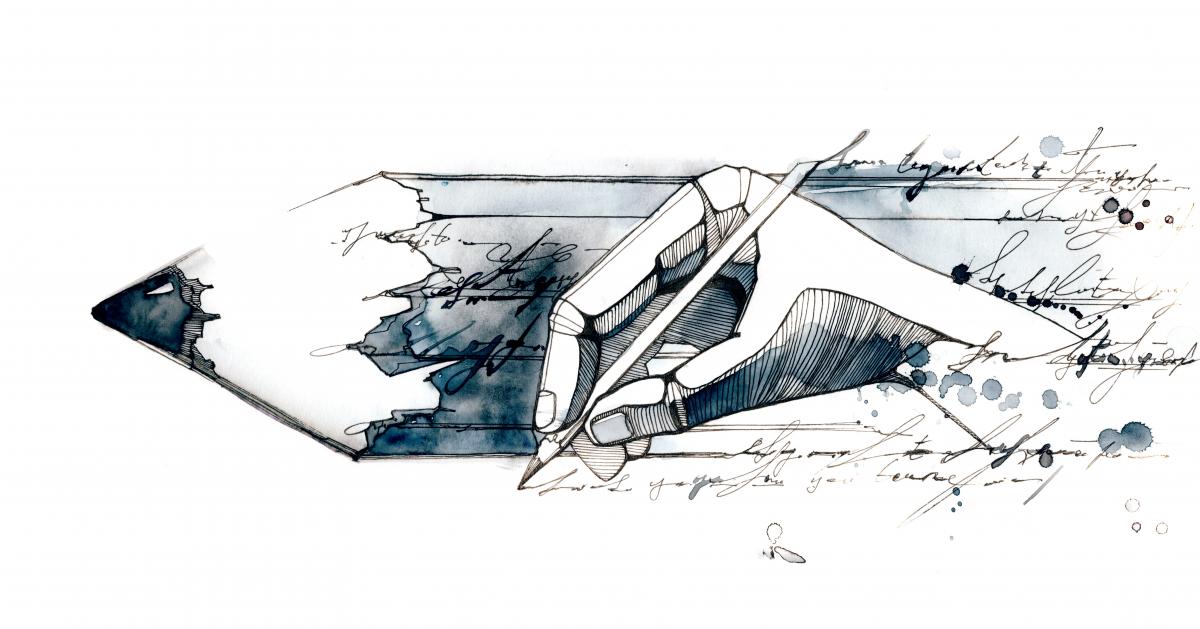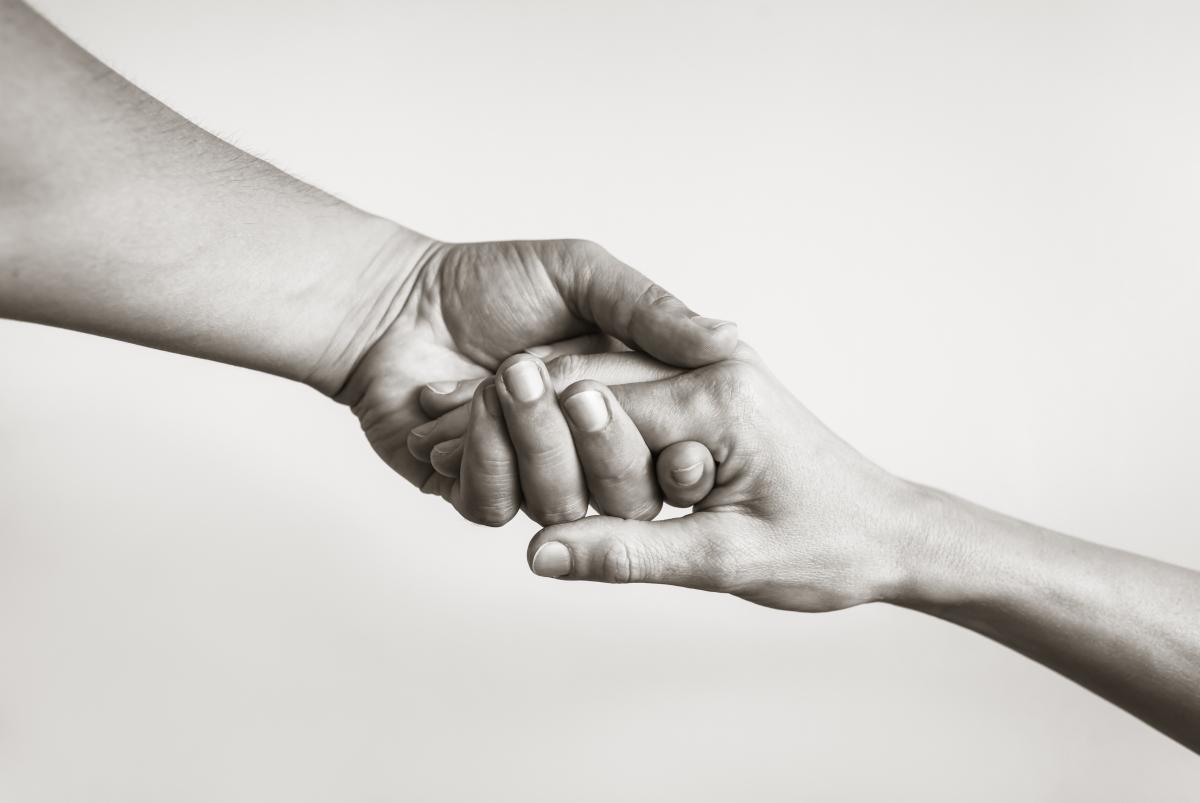Poetry has always been a part of my life. But it wasn't until I was tasked with the role of moderating a poetry workshop for people with Parkinson's that I truly fell in love with the art form. It was winter, the pandemic still raging. We had been cloistered for too long. In many of us, a longing—a deep and innate need—for connection swept through us and took hold. I had just started working remotely for a nonprofit organization that supports people impacted by movement disorders like Parkinson’s disease (PD) and was asked if I could meet via Zoom with PD support groups across the country to teach them how to write a poem.
when we write, we can reclaim our stories:
I am everything I have ever been, everything I am,
everything I will be. I am.
I didn’t know much about Parkinson’s at the time; I had spent the prior few months getting curious, listening to stories. I thought it was an old man’s disease, that it looked like a grandpa with a shuffling gait. Instead, I met a physician, 27 years old, expecting her first child, who noticed a little twitch in her pinky finger. She kept resisting the voice that told her it was serious until a neurologist put an end to her denial: a few months before her daughter was born, she was diagnosed with young onset Parkinson’s disease. Just like that, a new normal.
There was the wife whose husband of nearly 50 years had Parkinson’s. She sent me a video of her reading to her husband the article I wrote about them. He could no longer talk, but she read slowly, patiently, tenderly, and he looked into her eyes. When she finished, he cried. “Happy tears,” she told me. I hadn’t yet lived enough to fully understand it but, My god, I thought. That is love.
And then there was the question, dropped in the middle of a Parkinson’s support group the first time I ever listened in to one: “Will anyone ever love me again?” The inquirer was 38 years old and single when she was diagnosed with Parkinson’s. I felt struck in the chest by her question. She had touched on something real, hitting on universal fears: Am I wanted? Will I go through this world alone?
So when I was asked to lead these virtual poetry circles, I said yes, and something fluttered in my chest. What I knew is that the organization I worked for wanted to create a poem gallery themed around the phrase “I am.” When you’re living with or loving someone who has a chronic and degenerative disease like Parkinson’s, it can feel like your world gets overtaken by it, lost in a swirl of doctors appointments, medications, changing bodies, changing lives, and uncertainty. But when we write, we can reclaim our stories: I am everything I have ever been, everything I am, everything I will be. I am.

“I had never taken the time in my life
before that night to write a poem.”
I remember the first poetry circle. I was living in New York; it was dark and cold by the time our Zoom call rolled in. Two handfuls of us—all women—gathered around our screens. Of course, there was no log fire in the corner of our virtual world, but when I think of this night, I always see a fire’s embers in my mind’s eye, like we were huddled together, leaning into the bodies in the Zoom box next to ours for warmth. Though we would build into a passionate sharing of voices, poems, and stories, it started out hushed, a lull leading to a quiet incantation. Coming together, witnessing each other, felt like prayer.
The women who gathered that night were not people who claimed to be poets. As one participant would email me later, “I had never taken the time in my life before that night to write a poem.” Instead, those who showed up came because they were open, because they were curious. They came because it was their usual support group and this was the thing they did once a month on a Thursday night. But, really, I think they came because they were sparked: something in them longed to say This is who I am. When we talked about the phrase “I am” that night, we practiced ways they could use those words in their poem. “What happens,” I asked them, “when you add not after I am, like I am not my father’s daughter? or I am not what you think I am?” “It sounds defiant,” one woman said. We paused, breathing in the fighting energy she conjured. Until, quietly, a different voice emerged, summoning us to another question: “What if I say, I am still…?” We had been recounting all the things they had lost because of Parkinson’s and here she was, reminding us not all is lost. I am still me.
What awes us most is each other.

Recently, I listened to a podcast about awe. The scientist studying awe said it's not the wonders of the world or even nature that stoke the most awe in us (though, of course, they do). What awes us most is each other.
What emerged from the lips of those who shared their poems that night awed me. Not because people with Parkinson’s are heroes. Not because they're extraordinary. In fact, precisely the opposite: because, that night, they let their humanity fill the air; they let us see it. Not what it means to live with Parkinson’s, but what it means to navigate this life. What it means to keep coming home to yourself even after change strikes—because it will, won’t it? Over and over again, there is change. We are tasked with riding its waves—that human cycle where each time we’re faced with change anew, maybe we can recall the fragrance of the time before and we can know it better. Maybe we can resist it less, embrace it more. Flow with it. Find ourselves in it, even when—especially when—it submerges us. Even when—especially when—it is unbidden.
What I have discovered in these poetry circles is that poetry is not just a luxurious medium, only for those who have the time and attention and particular artistry to master it. No—poetry lives amongst us. And it is healing. That night, the revelation dropped: poetry is how we nourish ourselves. How we reclaim ourselves. How we fall into each other.
At the end of that first poetry circle, I realized several of us were sitting there, alone in our desk chairs in our homes hundreds of miles apart, with our hands resting on our hearts. Without knowing it, we were drawn to place our bodily attention there. Somehow, miraculously, through screens and a pandemic, we had created intimacy.
A 2022 study looked at the ways the pandemic touched people with Parkinson’s—not in the number of people who tested positive for COVID-19, but in the ways isolation impacted their bodies and spirits. The results told us we need each other. Social isolation increased visible and invisible symptoms amongst people with Parkinson’s—more depression, a decline in memory, new or worsening motor, or movement, symptoms. Our bodies are listening: when our social connections are blighted, our bodies suffer. Body and spirit are connected. We are connected.
Months after that night, another woman from the support group wrote to me. “At the age of 53,” she wrote, “I was diagnosed with Parkinson’s and I was just going through the process of all the feelings involved in that journey. I didn’t realize I had the gift of poetry, this creative work. The workshop was an exploration, uncharted territory for me. It was as if a new door was open to me, the discovery that I could express myself.” She told me that she had felt lost in her diagnosis but, that night, she began to recover herself. “I found myself, my inner voice, and my inner power…I rediscovered how to create light, to ignite and inspire. My life was re-created. And I am grateful.”
While she expressed her gratitude to me, it was not about me. It was about us—the poets. The handful of us who were anointed that night as poetic muses. The handful of us who fell in love not with a single poem, but with our collective incantation. With the way we found ourselves alongside each other.
Isn’t that always the way magic happens? Not alone, but together.
_______
Ashley Asti is a storyteller and poet who has written a handful of books, including, At the Threshold, Up: A Love Letter to the Down Syndrome Community, and I Have Waited for You: Letters from Prison. In her work, she’s had the blessing of working alongside and learning from the Down syndrome community, Parkinson’s community, and those impacted by mass incarceration. She lives in Tucson, AZ, with her partner and growing collection of plants.

